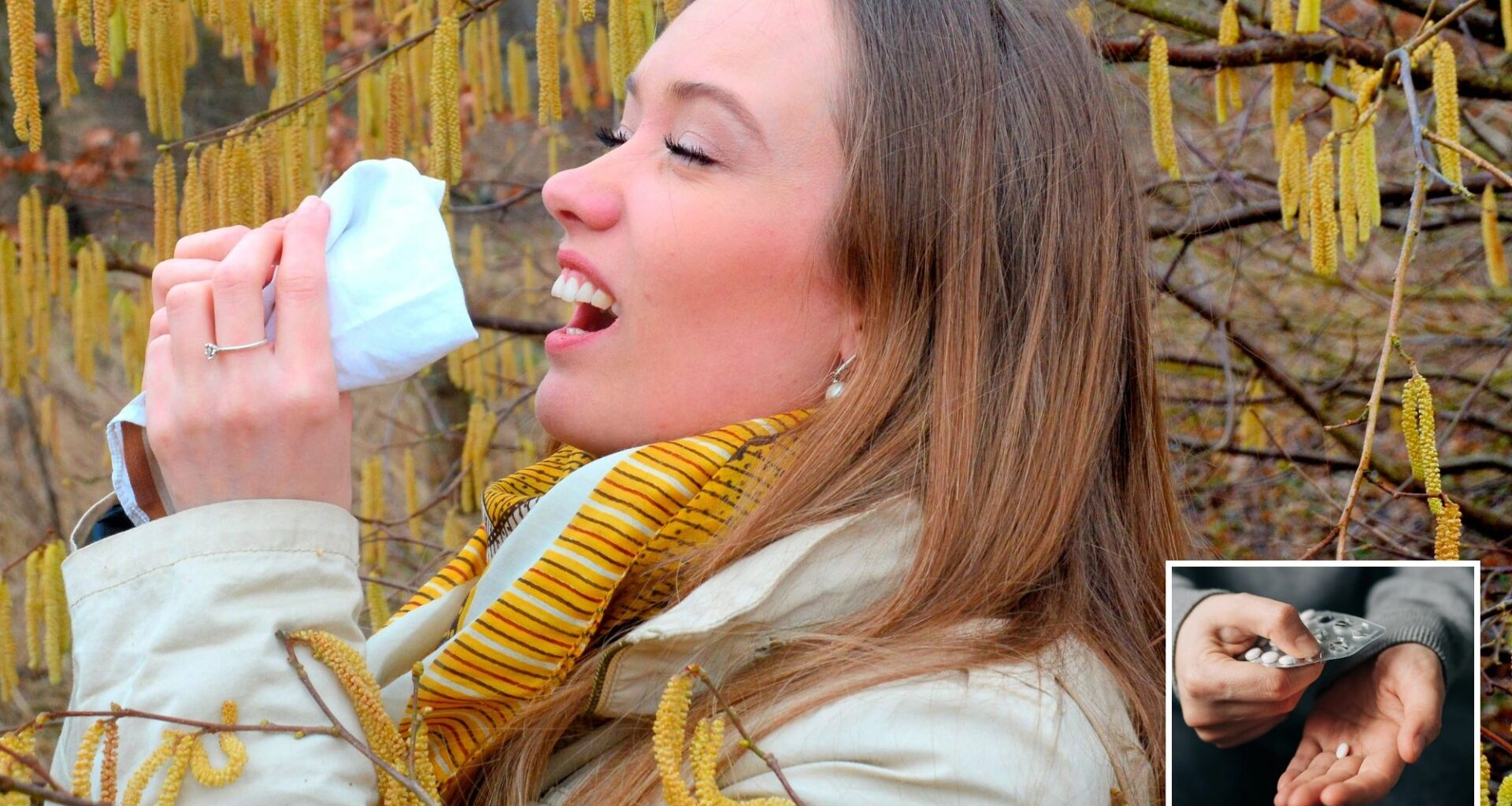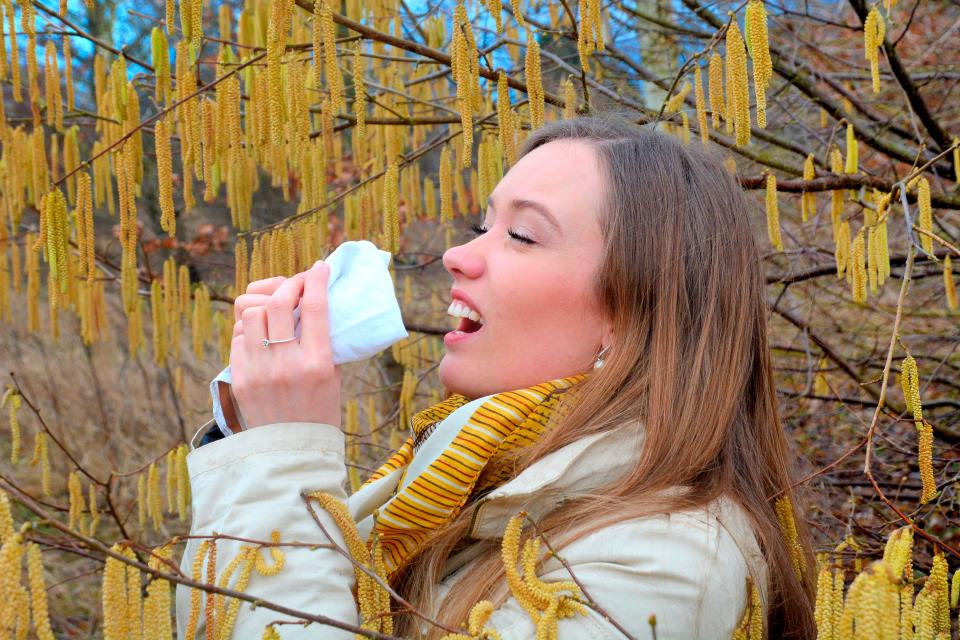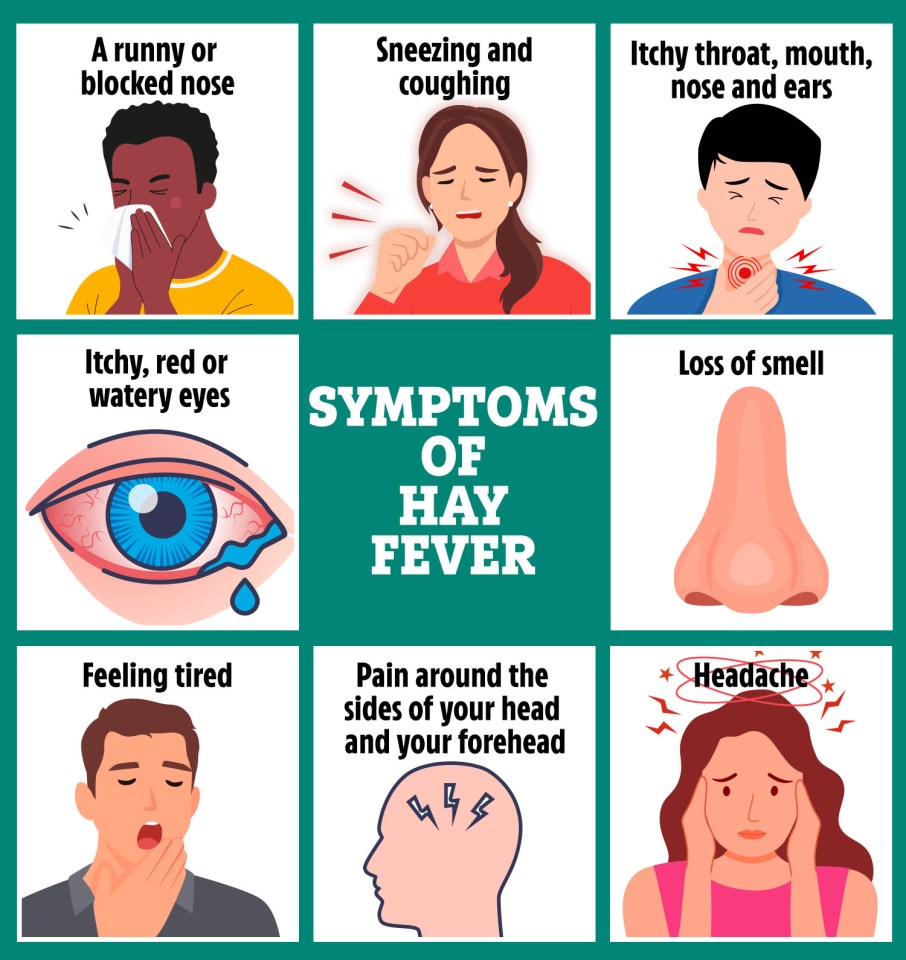TENS of thousands of hay fever sufferers will soon be prescribed a new treatment on the NHS.
An under-the-tongue tablet – sold under brand name Itulazax – trains the body to tolerate more birch tree pollen through exposure.
4
Thousands of hay fever sufferers will soon be prescribed a new treatment on the NHSCredit: Getty
4
The drug will work for those with birch tree allergiesCredit: Getty
4
The treatment trains the body to tolerate more pollen through exposureCredit: Getty
And trials show it can significantly reduce the worst allergy symptoms like sneezing, itchy eyes, blocked nose, breathing problems and fatigue.
Itulazax, also known as Betula verrucosa, has been approved by NHS spending watchdog Nice and is now recommended it for people whose hay fever persists after basic treatment.
Helen Knight, director of medicines evaluation at Nice, said: “This treatment will help improve people’s quality of life.
“Severe tree pollen allergies trap people indoors during beautiful weather and disrupt their work, education and family life.
“The daily tablet offers genuine long-term relief rather than just managing symptoms.”
However, it only works on those with a birch pollen allergy – which is about a quarter of hay fever sufferers, estimated to be 27,000 people.
Patients will need a skin prick or blood test to confirm the allergy before getting the tablets.
The NHS in England will offer it within three months of Nice publishing its final guidance.
Amena Warner, head of clinical services at Allergy UK, said: “Many people don’t realise how awful it is having an itchy, runny nose, sneezing episodes or itchy, irritated eyes in the pollen season.
“We frequently hear from people who avoid time outdoors, keep doors and windows shut, check pollen counts and try and minimise any exposure, which takes a significant toll on their physical and emotional wellbeing.
hayfever recommendations from a boots pharmacist
“Nice’s recommendation is so important because it provides a genuine opportunity for people to manage the root cause of their pollen allergy, offering the chance to break free from this burden and enjoy a better quality of life.”
The NHS will begin offering Itulazax within three months of final guidance being published.
Professor Meghana Pandit, co-medical director at NHS England, said: “This innovative treatment, which will soon be rolled out on the NHS, enables patients to build up tolerance to birch tree pollen within their immune system, rather than just treating the symptoms — and we hope this will give many a new lease of life, allowing people to spend time enjoying being outside, without the discomfort allergies can bring.”
Emil Stage Olsen, general manager UK and Republic of Ireland at ALK, added: “We welcome this positive Nice recommendation, which is another meaningful advancement for the UK allergy community.
“Our focus is now on working closely with the NHS to ensure eligible patients can benefit from this first-in-class immunotherapy.”
4
Pollen allergies can show up in your nose, eyes and throat
Sun Health’s 14 tips to beat hay fever hell on a budget
SUMMER is here, which means the annual onslaught of dreaded hay fever symptoms is back with a vengeance.
Triggered when the immune system reacts to the allergen pollen, common hay fever symptoms include watery, itchy eyes, a tickly throat and a runny, congested nose.
Holly Shaw, a nurse adviser for charity Allergy UK, puts this down to “better diagnosis but also climate change, with warmer temperatures causing pollen seasons to start earlier and last longer”.
But if the go-to remedies of daily anti-histamine tablets, nasal sprays and balms from the chemist are not doing the trick, don’t lose hope, there are other hacks you can deploy.
From regularly showering and vacuuming the home to scoffing chocs, here are some tactics backed by experts not to be sneezed at . . .
Wear wraparound sunglasses and a hat with a peak or big brim or go for a face maskOn high pollen days, have a bath or shower and wash your hair. Change your clothes when you get home.Avoid mowing the lawn or raking leaves – ask someone else to step in.Try not to dry clothes or bed linen outside when the allergen count is high.Keep windows firmly closed, especially early in the morning and in the evening, when higher levels of pollen are released.Wipe down pets with a damp cloth, as they can bring pollen into the home. Also, think about keeping your dog or cat away from you if you can.Put Vaseline around your nostrils to trap particles before they can work their way up your nose.Take a few minutes each day to vacuum well, especially if you have deep-pile carpets. Hoover over upholstered furniture where particles may have spread through open window.Wipe down window panes and sills regularly.Wash your bedding once a week at a high temperature to remove any pollen that may have transferred from you and your clothes.Take vitamin D supplements. Research has shown they can regulate immune system cells that help to prevent allergic reactions.Experts say diets high in antioxidants such as broccoli, spinach, potato and carrot can help to ward off stuffy noses caused by hay fever.Dark chocolate can also help to reduce symptoms, it is said.If all else fails and you feel hay fever is ruining your life, or even causing asthma attacks, pay a visit to your doctor who could refer you to a specialist clinic



